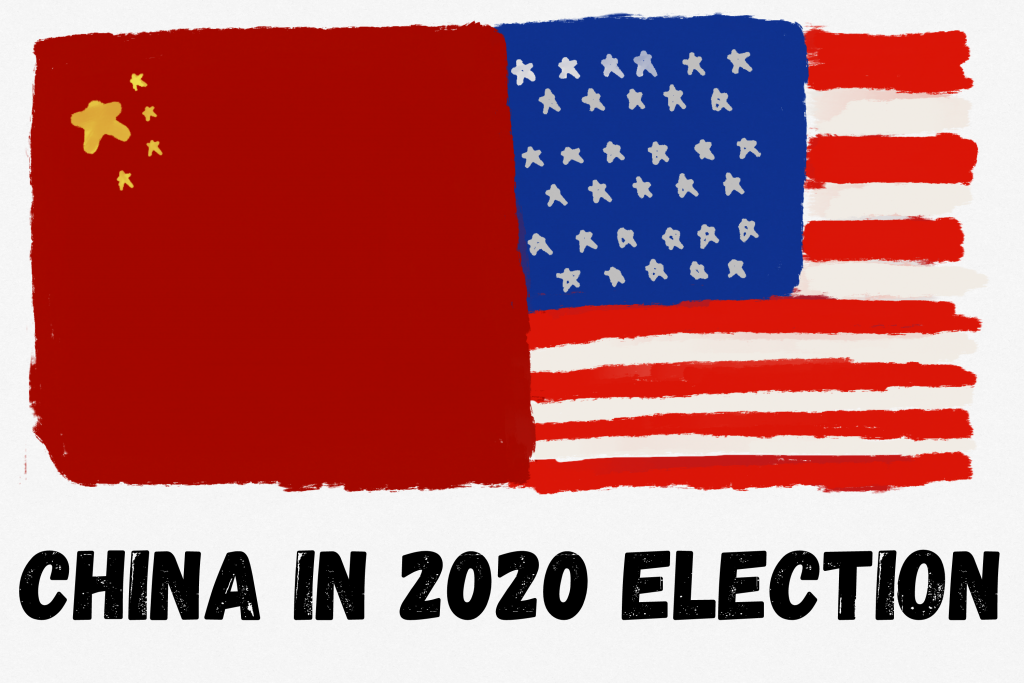Trump vs. Biden: Strategies on China
Trump vs. Biden: Strategies on China

Nearly one month away from the 2020 Election, President Trump and Joe Biden are campaigning around the country to gain as much support as possible. Although their strategies differ, one commonality in their campaigns is to target China.
The concept of Rising China has caused concern for many western countries, including the U.S., and both presidential candidates are criticizing China during this year’s election campaign. The views of Trump and Biden towards China can serve as a projection of the U.S.-China bilateral relationship in the upcoming term of office.
“It’s important to note that what we’re seeing in the U.S. politics today is what I would see as a convergence on the U.S.-China relations issue between the two parties,” said Daniel McDowell, an associate professor of political science at the Maxwell School of Citizenship and Public Affairs. “I don’t think we’re going to see either Biden or Trump speak positively about China in most cases. I suspect that we’ll see more agreement between them on that front.”
On Trump’s side, he has established a series of plans, such as the trade war, in order to “sanction” China after entering the offices. Mary Lovely — a senior fellow at Peterson Institute for International Economics and professor of economics at the Maxwell School — wrote in her op-ed that the U.S. has established “ineffective” and “costly” tariffs that pinch American factories and create more difficulties of maintaining and expanding export sales. She also suggested that “tariff rollbacks signal a desire to reduce mounting US-China trade tensions, offering a much-needed model of global cooperation at a time of shared crisis.”
That crisis is COVID-19. After the coronavirus outbreak spread in the U.S., Trump began to take an even harsher position on criticizing China, which is shown by him continuously addressing the coronavirus as “China Virus” and his most recent remarks of “the WHO is virtually controlled by China” in the 75th Session of United Nations General Assembly.
“I think the effect of focusing public attention on China and continuing negative frames about U.S.-China relations have further deteriorated the public’s view of China,” McDowell said.
On the other hand, Biden’s current perception of China seems to have changed since he served as the vice president in the Obama administration.
“The change that has occurred with respect to Biden’s position on China is shared by a number of political elites in the U.S. who had adopted an approach to China that was about engagement, especially on economic matters, for example, normalize trade with China and bring it into the World Trade Organization,” McDowell said, explaining that these elites failed in the hope of influencing China to concede more human rights to its citizens eventually.
The major strategic difference in the bilateral relationship with China is consequently established. The second Trump administration would continue to focus on trade, while the new Biden administration would be more publicly critical of China on human rights issues, McDowell said.
Bonnie Glaser, director of the China Power Project at the Center for Strategic and International Studies, also raised a similar point of the Trump administration.
“Narrowing the bilateral trade deficit with China is President Trump’s top priority,” Glaser said.
Rising China is not new to many international relations scholars, and certain patterns of the superpower transition have caused concern to whether the U.S. and China will fall into a new Cold War.
“Most of the problems in the relations have emerged as the power gap between the US and China has narrowed and particularly after Xi Jinping has come to power,” Glaser said. “In some ways, the U.S.-China relationship is fundamentally different from that between the U.S. and the Soviet Union.”
McDowell also said that neither side is likely to start a military conflict. Intensified low-level conflict is more likely in this case because both the U.S. and China have a healthy respect for each other’s capacity, he explained.
The trend of this bilateral relationship remains uncertain but will be impacted by the result of the election. Trump and Biden are set to have their first of three presidential debates tonight, which may further indicate the candidates’ positions on China.





